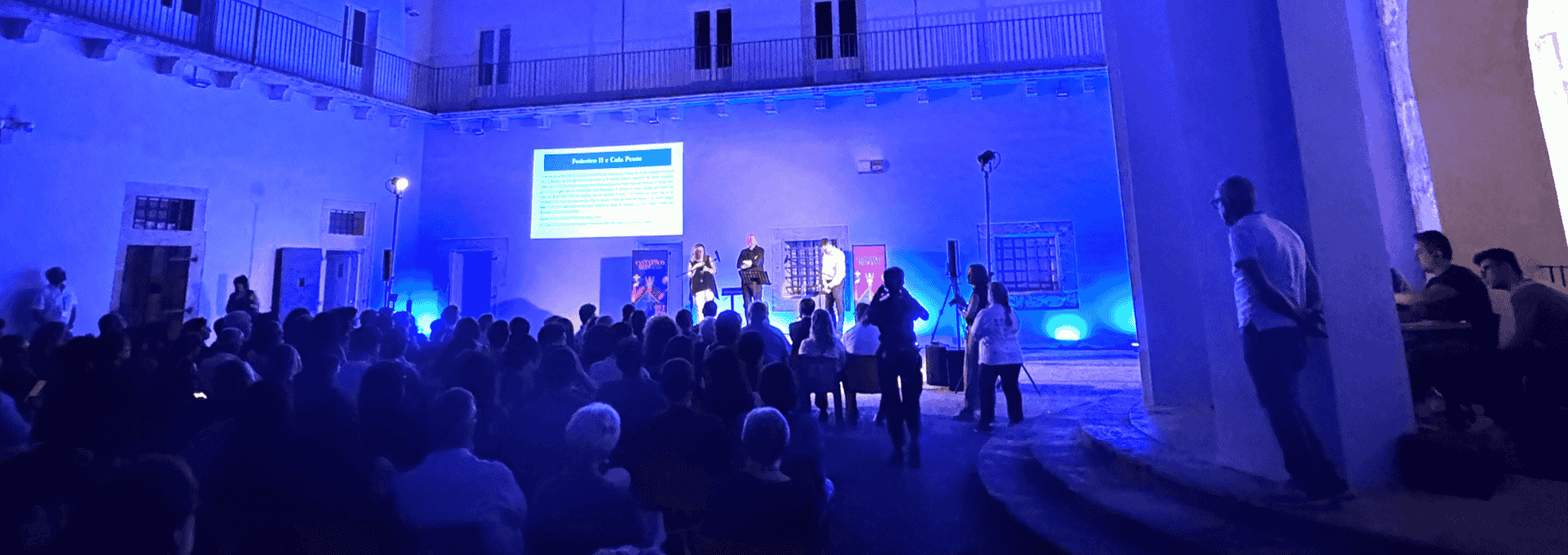
Matera and the Mediterranean: A Dialogue Spanning Eight Centuries
There is a place where the Middle Ages meets the Mediterranean. It’s not a date. Not a legend. It’s a city. And that city is Matera.
We witnessed this vividly on Saturday, July 26, in one of the most evocative courtyards of the ancient city, during the lecture-performance by historian and writer Alessandro Vanoli, joined by professor Fulvio Delle Donne. The title? “Matera in the Middle Ages: A Mediterranean Story.”
A rich and imaginative narrative, revealing Matera as it truly was: a crossroads of cultures, symbols, and powers—where East meets West, North meets South, and land meets sea.




